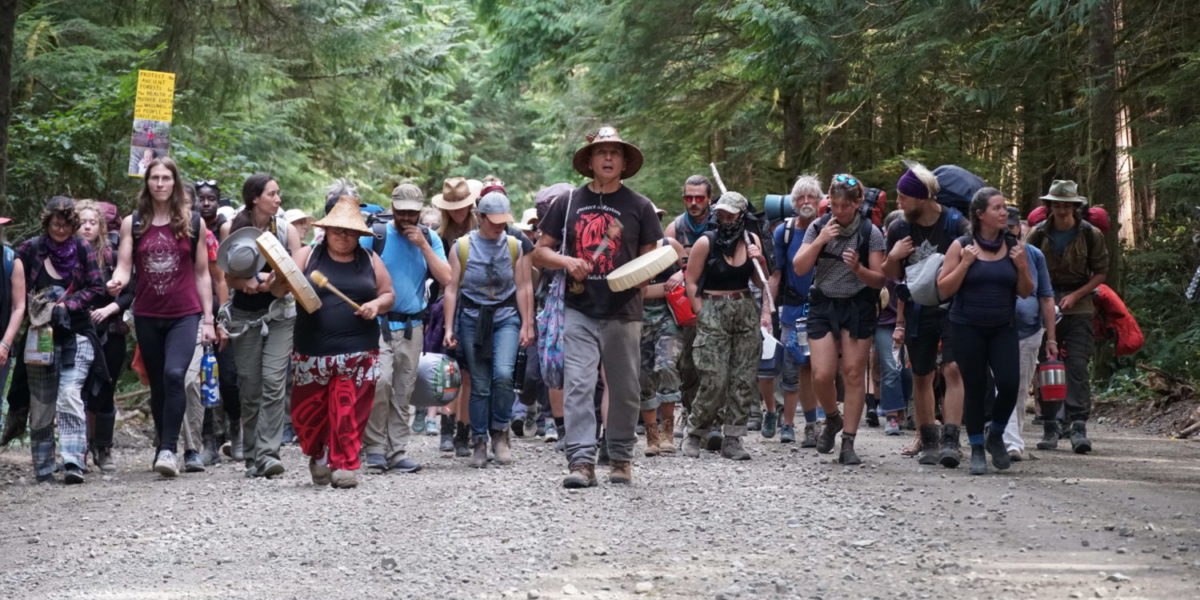It only takes one doom scroll through social media to see there is no shortage of injustice in the world. But there is also no shortage of people who have dedicated themselves to dismantle systems of violence and advance justice through activism.
With how deeply entrenched injustice is in our society, the work to dismantle injustice is a full-time job. Despite the hours put in, this job does not fit a capitalist and colonial view of labour.
El Jones, a prison abolitionist dedicated to fighting state violence, said that for Black people, there is a historical precedent that makes it easier for this work to go unrecognized.
“Labour and Blackness cannot be separated,” Jones said in an interview with rabble. “You can’t understand any current Black problem without returning to the idea that we were property for a long time. In that context, Black labour is still often taken for granted, especially Black women’s labour… There’s just a kind of sense that we are made to do free labor, and it’s not even really labour.”
Activism is a full-time job
Joshua Wright, who is involved in petitioning and other campaigns to fight logging of old growth forests, said that activism is like a full-time job, but people will inevitably be forced to take breaks.
“I still have to have money for myself. I spend several days a week working odd jobs making a few 100 bucks. It’s kind of infuriating because while I work, there are trees that need to be protected,” he said.
The frustration stems from the fact that the work Wright truly loves exists without wage relationships. He said that outreach, research and mobilization all take a significant amount of energy. This energy is expended for free, despite it protecting the ecosystems that human survival depends on.
The labour of activists, and specifically marginalized activists, often goes unpaid and unrecognized. While reflecting on this issue, Jones said that the solution is one that exists outside of a capitalist way of thinking.
“We are all encouraged to put a monetary value on our work under capitalism,” Jones said. “So it’s very hard to move outside of that frame. It’s very easy to fall into an idea of, ‘I’m doing this work, it’s important work, it’s hard work, why am I not getting paid?’”
An anonymous forest defender from Fairy Creek who uses the pseudonym Marty Grove, said that what people need to understand about activism is that it truly is work. Although this work exists outside of a wage relationship, it is still valid.
“People would drive by us and yell, ‘get a job!’” Grove said. “That’s the biggest insult they could think of throwing at us, that we’re not currently contributing to colonial capitalism. We thought that was hilarious because we actually do have a job. We’re just not getting paid in money.”
Activism labour has value beyond money
Wright, Grove and Jones all said that they felt as though there was no other choice but to engage in activist labour. The motivation comes from a place of love, they said. It comes from recognizing value beyond money.
One instance that reminded Jones of why she does this work came from meeting an illegalized immigrant. Abdoul Abdi, a former child refugee from Somalia, fought hard against his deportation case. Jones lended her support during this struggle.
When Jones met Abdi for the first time, he ran towards her, picked her up and twirled her around.
“I have never felt that much joy in my life,” Jones said. “We had really struggled together.”
Jones said that she is not just labouring for herself, but her community. She said it restores and heals to look at labour this way.
“I think the challenge is thinking about how to differently value things in the community,” Jones said. “How can we differently support the working community? What would it look like if our communities were able and willing to collectively support this kind of work from everybody?”
Mutual aid will help communities thrive
Part of the answer is community care and mutual aid, according to Jones. She said that many mutual aid networks popped up during the pandemic, but this type of support can continue outside of COVID-19 lockdowns. She said that every person has different capacities and needs. Finding the ways those capacities and needs fit together will create a support system that can continue to dismantle cycles of injustice.
Grove said that if every community does work to identify its needs, then folks in positions of privilege can come together to support those who do unpaid but necessary work.
“A lot of forest defenders lost their cars, lost their homes, lost everything because they saw that this is a fight worth fighting,” Grove said. “The next task was figuring out what the needs are of people that come off these frontlines. Sometimes it’s financial, like you just need to get a roof over your head.”
Jones said that mutual aid work also reveals that activism is not some exclusive thing that only a few people can engage in. Anyone can support the struggle for justice, Jones said.
“There’s this idea that there’s a class of people that ‘do activism,’” Jones said, “but that’s not a mass movement. A mass movement is when everybody has the skills and capacity, everybody is called upon to do what they can, everybody gives what they can, everybody is empowered and given the ability and resources to do that.”



